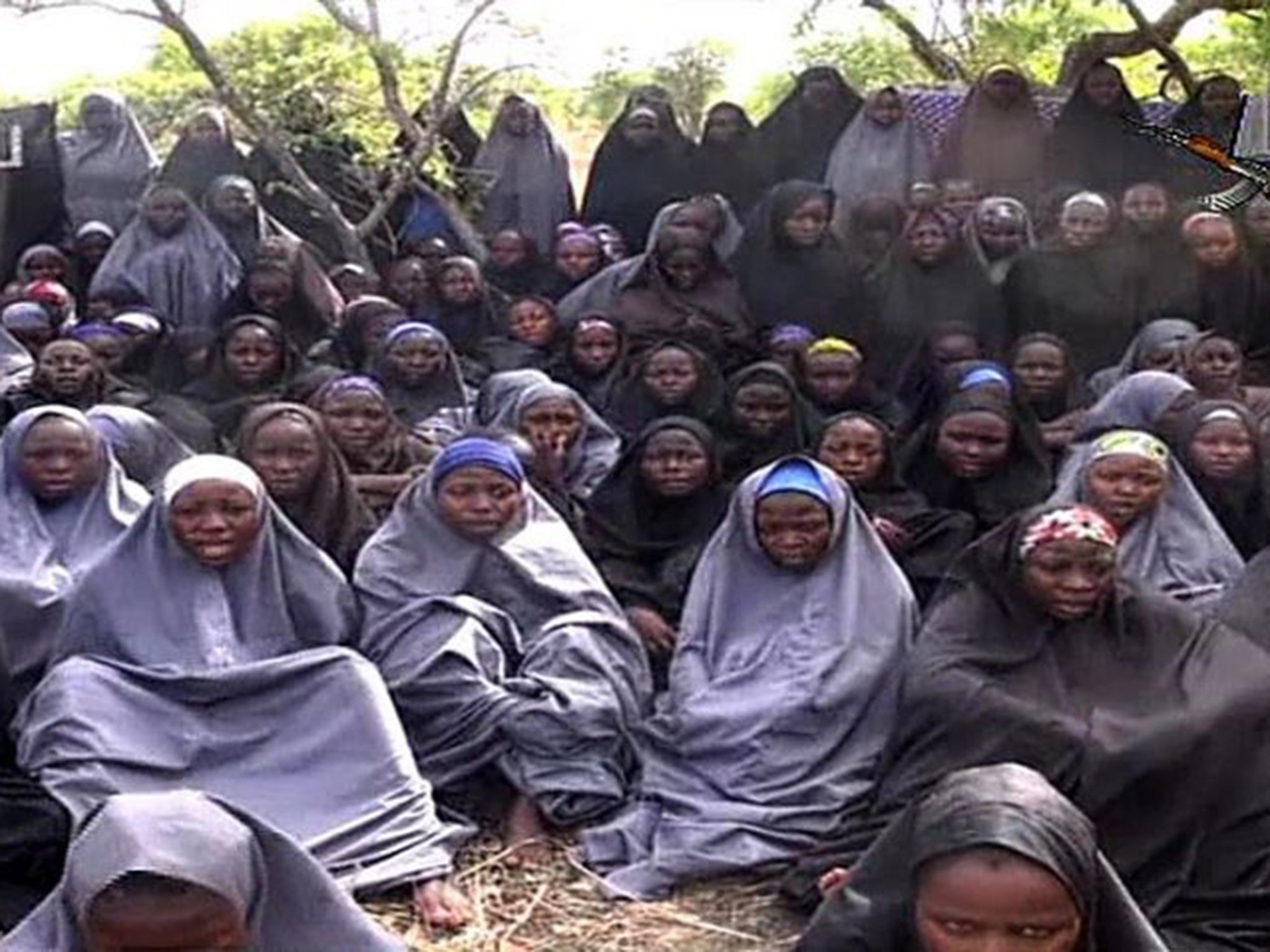One year on from Chibok girl kidnappings, UN identifies 19 countries where sexual abuse of both boys and girls has become a way of life
UN Secretary-General Ban Ki-moon says the abduction of the schoolgirls was 'one of the most alarming episodes' of sexual violence last year

What was 2014 the year of? For the UN’s Ban Ki-moon, it was marked by a “disturbing trend” of harrowing sexual violence, with rape, slavery and forced marriage used as tools of war and terror by extremist groups.
One year on from the Chibok kidnappings and #BringBackOurGirls campaign, the UN Secretary-General identified the incident involving 276 schoolgirls in Nigeria as “one of the most alarming episodes of 2014”.
But in his report, released on Monday, Mr Ban named 19 countries including Nigeria where the UN has “grave concerns” that sexual violence against both women and men have become a way of life.
“The confluence of crises wrought by violent extremism has revealed a shocking trend of sexual violence employed as a tactic of terror by radical groups,” the UN chief said.
Identifying those promoting extremist ideologies as among the worst offenders, Mr Ban said efforts to “degrade or destroy” the likes of Isis, Boko Haram, al-Shabaab and al-Qaeda affiliates were “an essential part of the fight against conflict-related sexual violence”.
The report focuses on 19 countries engulfed in conflict or trying to recover from fighting where sexual violence including rape, sexual slavery, forced prostitution and forced pregnancy occurs – as well as a series of recommendations as to what can be done to address the situation.
Issued a day before the first anniversary of the 14 April abduction of secondary school students from the northern Nigerian town of Chibok, the report said Boko Haram often forces women and girls it seizes into marriages that entail repeated rapes.
“Forced marriage, enslavement and the 'sale' of kidnapped women and girls are central to Boko Haram's modus operandi and ideology,” it said. “Abducted girls who refuse marriage or sexual contact within marriage have faced violence and death threats.”
Since mid-2014, the report said, “there has been a significant increase in the number of reported cases of sexual violence perpetrated by terrorist groups,” especially the so-called Islamic State group which “uses sexual violence to spread terror, persecute ethnic and religious minorities and suppress communities that oppose its ideology”.
The report singled out that group's abduction of hundreds of Yazidi women and girls in Iraq, some of whom were taken into Syria and “sold” in markets to be used as sex slaves. It said "three cases of forced abortion perpetrated because of the ethnicity of the victim were documented by the government” of Iraq.
On a positive note, the report said Congo's government took “unprecedented steps” including prosecuting high-ranking officers for sexual violence and paying reparations to survivors. But at the same time it said 2014 saw a resurgence of violence by armed groups including an increase in rape.
For the full list of measures and countries identified in the report, click through the gallery above.
Additional reporting by agencies
Join our commenting forum
Join thought-provoking conversations, follow other Independent readers and see their replies
Comments